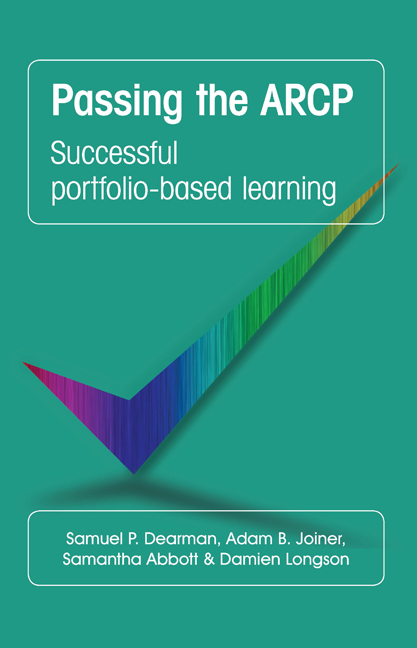Book contents
- Frontmatter
- Contents
- Authors
- List of figures
- Foreword
- Preface
- Acknowledgements
- List of abbreviations
- How to use this guide
- 1 Quick reference guide
- 2 What is a portfolio?
- 3 Lessons learned so far
- 4 Organising the portfolio
- 5 Managing your workplace-based assessments
- 6 Reflective practice and self-appraisal of learning
- 7 Audit and research
- 8 Teaching
- 9 Psychotherapy experience
- 10 Management and leadership experience
- 11 Appraisal reports, planning meetings and educational objectives
- 12 Other experiences, achievements and documents
- 13 The future of portfolios
- Index
Foreword
- Frontmatter
- Contents
- Authors
- List of figures
- Foreword
- Preface
- Acknowledgements
- List of abbreviations
- How to use this guide
- 1 Quick reference guide
- 2 What is a portfolio?
- 3 Lessons learned so far
- 4 Organising the portfolio
- 5 Managing your workplace-based assessments
- 6 Reflective practice and self-appraisal of learning
- 7 Audit and research
- 8 Teaching
- 9 Psychotherapy experience
- 10 Management and leadership experience
- 11 Appraisal reports, planning meetings and educational objectives
- 12 Other experiences, achievements and documents
- 13 The future of portfolios
- Index
Summary
I was delighted to be invited to write the foreword for this book, which I hope will encourage many trainees to approach their learning with greater understanding and present themselves in the best light at the annual review of competence progression (ARCP).
Knowing how to maintain a portfolio as a useful record of learning and reflection can be difficult for any doctor new to specialty training, and understanding how to demonstrate learning through the portfolio to present at the ARCP can be particularly challenging. This slim volume describes the importance of collecting and collating information about a doctor's experiences so that the portfolio will easily demonstrate that the competencies expected for that period of training have been completed. It outlines the importance of reflection and how to write reflectively so that learning can be achieved and retrieved from daily experiences, and how to present materials in a logical manner. Chapter 3 is written as an interview with two key figures in the school of psychiatry in one deanery. Together, the interviewer, the head of school and the medical education manager describe how they use the information presented to them to judge whether or not a trainee is making adequate progress. The style enables the authors to identify many of the pitfalls for trainees approaching their ARCP.
This book will aid any medical trainee in their ARCP preparation and will be particularly useful for those training in psychiatry.
- Type
- Chapter
- Information
- Passing the ARCPSuccessful Portfolio-Based Learning, pp. ixPublisher: Royal College of PsychiatristsFirst published in: 2017



